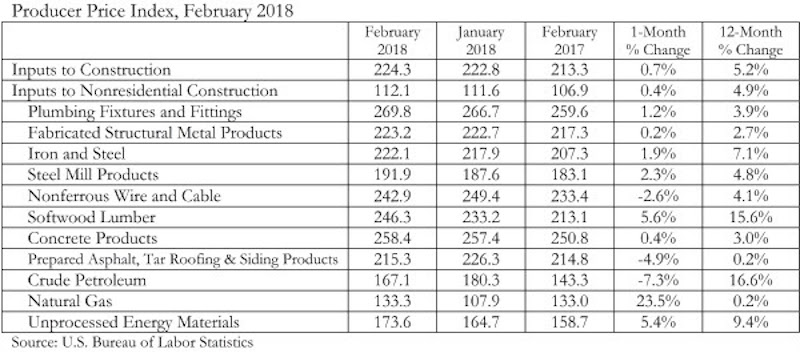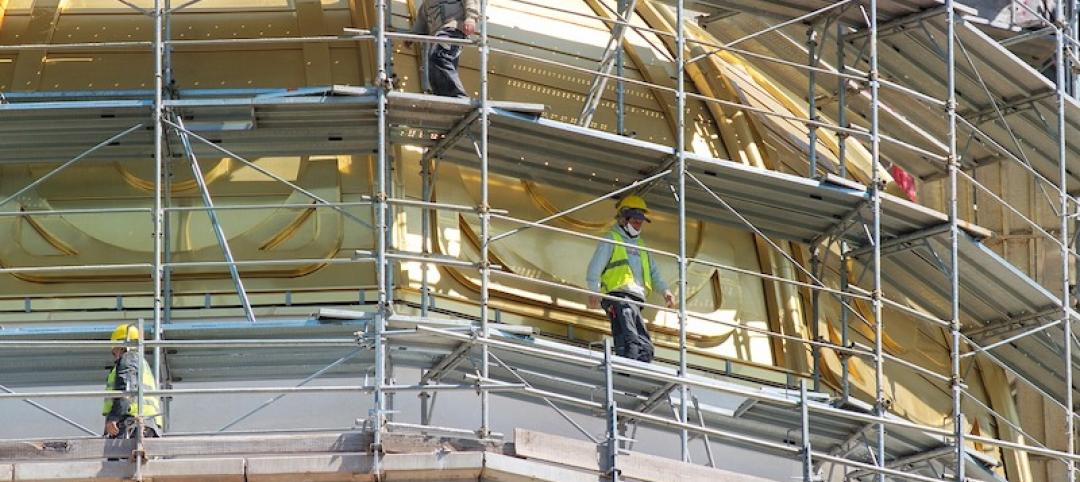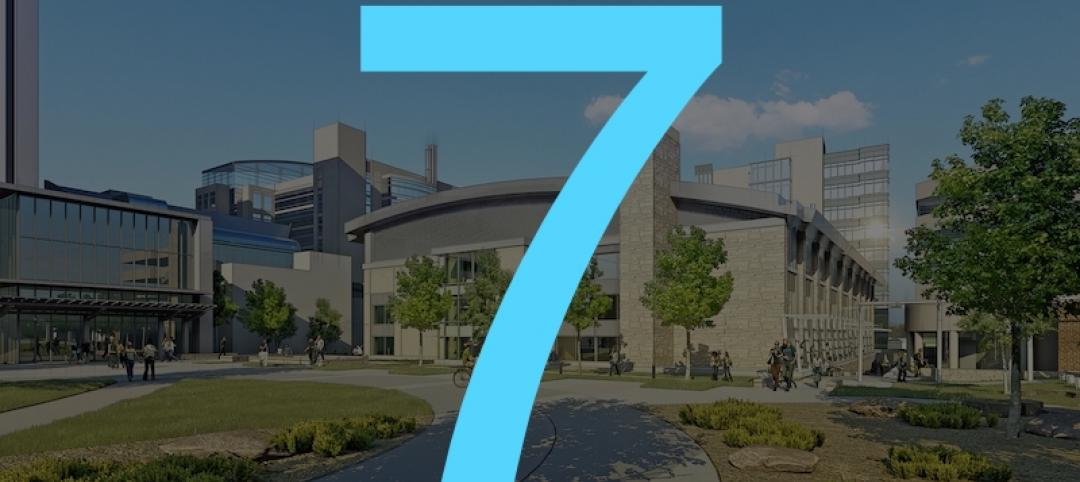Overall construction input prices rose 0.7% in February, slightly lower than the rate set in January, according to an Associated Builders and Contractors (ABC) analysis of Bureau of Labor Statistics data. Compared to February 2017, prices are up 5.2%. Nonresidential construction materials prices are also up 0.4% on a monthly basis and 4.9% compared to the same time last year.
Prices for all 11 subcategories increased year over year, and only three saw monthly declines. Crude petroleum saw the largest drop in price, falling 7.3% for the month, though it is up 16.6% on a year-over-year basis. Prices were also down for prepared asphalt, tar roofing and siding products (-4.9%) and nonferrous wire and cable (-2.6%). The largest monthly increase was in natural gas, which rose 23.5% in February. The rise in natural gas and drop in crude petroleum is a reversal of what was seen in January’s data.

“For the last several months, construction firms have become increasingly concerned about rising construction materials prices,” said ABC Chief Economist Anirban Basu. “Today’s data show those concerns are warranted. A confluence of factors will likely continue to push materials prices higher in the months to come. These factors include global monetary policy, which continues to help accelerate growth in much of the world, a strong U.S. construction market and a policymaking environment that has impacted the price of softwood lumber, steel and aluminum.
“Recently enacted tariffs are making headlines, but steel prices were already rising rapidly,” said Basu. “Based on today’s report, iron and steel prices rose 7.1% from February 2017 to February 2018. The price of steel mill products was up 4.8%, while the price of softwood lumber was up 15.6%.
“On top of materials price increases are, of course, expanding human capital shortfalls and rising compensation costs,” said Basu. “These factors have likely moderated near-term confidence among construction firms regarding profit margin growth in the midst of a healthy economy.”

Related Stories
Market Data | Jun 30, 2020
329 metro areas added construction jobs in May
Seattle-Bellevue-Everett, Wash. added the most construction jobs (28,600, 44%) in May.
Market Data | Jun 29, 2020
6 must reads for the AEC industry today: June 29, 2020
HQ tower features gardens on every floor and the head of Hilton talks about how his business will survive.
Market Data | Jun 26, 2020
5 must reads for the AEC industry today: June 26, 2020
Restoration of 1930s El Paso hotel completes and Arc offers tools, analytics for safe workplace re-entry.
Market Data | Jun 25, 2020
Commercial Construction Index drops amid Coronavirus pandemic, but contractors poised for near-term recovery
Contractors quickly prioritized worker health and safety, and 1 in 3 plan to hire more workers in the next 6 months.
Market Data | Jun 25, 2020
7 must reads for the AEC industry today: June 25, 2020
CDC to build the most advanced high containment laboratory in the country and architecture billings downward trajectory moderates.
Market Data | Jun 24, 2020
Architecture billings downward trajectory moderates
AIA’s Architecture Billings Index (ABI) score for May was 32.0 compared to 29.5 in April, but still represents a significant decrease in services provided by U.S. architecture firms.
Market Data | Jun 24, 2020
8 must reads for the AEC industry today: June 24, 2020
San Francisco's apartment market goes in reverse and WATG designs a solution for isolating without sacrificing social connectivity.
Market Data | Jun 23, 2020
National survey reveals pandemic's impact on college students' mental health, remote learning, families' income and more
Of 2,500 student respondents, 75% feel more anxious or stressed, 57% said they lost their summer jobs and 90% want to return to campus in the fall.
Market Data | Jun 23, 2020
7 must reads for the AEC industry today: June 23, 2020
Gyms are going bacnkrupt and leaving gaps in shopping centers and how hotels are trying to keep guests and employees safe.
Market Data | Jun 22, 2020
New House infrastructure package will provide needed investments in aging infrastructure, support economic recovery, and create jobs
The Moving Forward Act’s proposed $1.5 trillion in new investments will improve range of public infrastructure, creating needed demand for construction while making the economy more efficient.

















